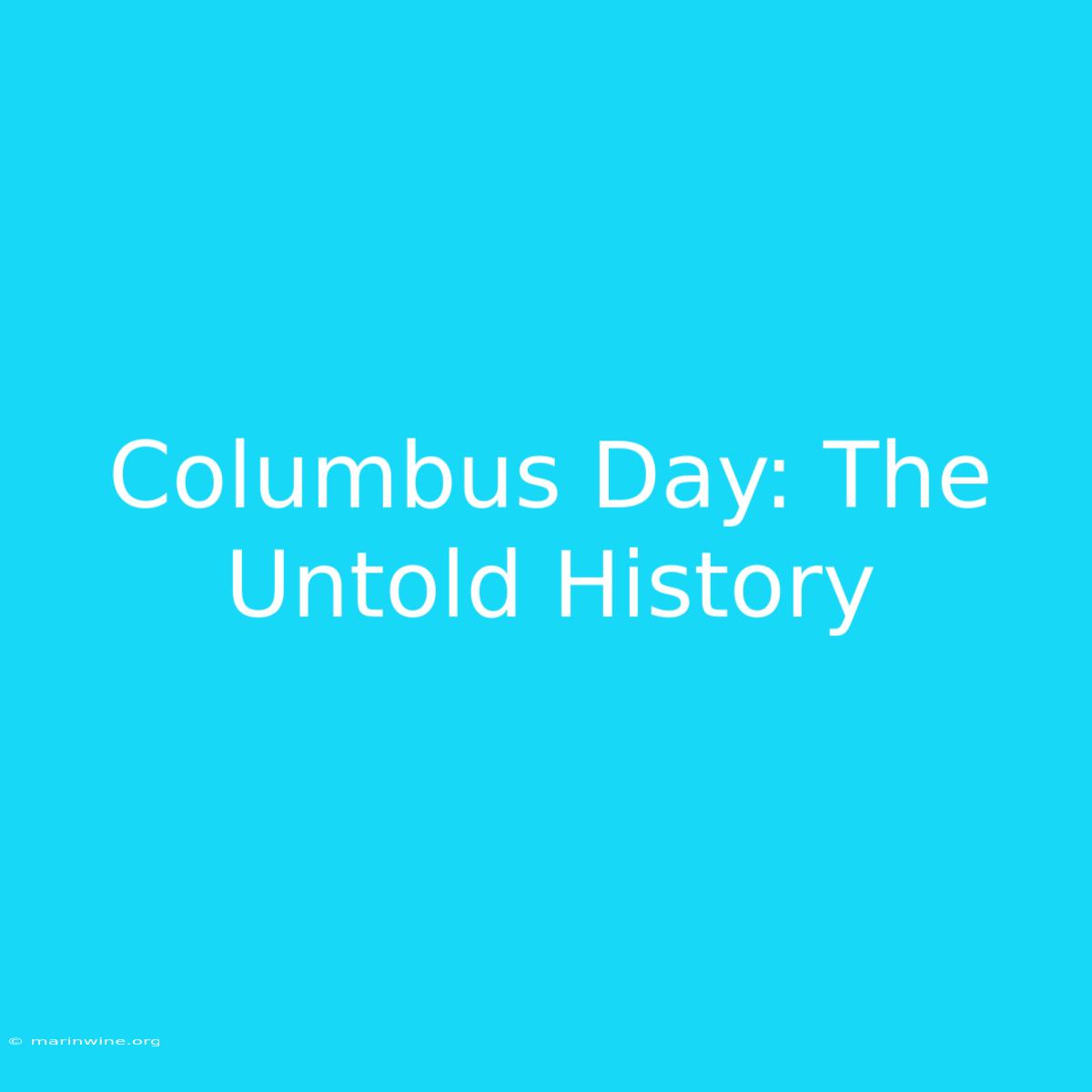Columbus Day: The Untold History
Editor's Note: This article explores the complex history surrounding Columbus Day, focusing on perspectives often left out of traditional narratives.
The Significance of the Debate
Columbus Day has been celebrated in the United States since the late 19th century, commemorating the arrival of Christopher Columbus in the Americas in 1492. However, the celebration has become increasingly controversial due to a growing awareness of the devastating impact his voyages had on Indigenous populations.
This debate is crucial because it forces us to confront a sanitized history and acknowledge the brutal reality of colonialism. It compels us to understand the lasting consequences of European conquest and the ongoing fight for Indigenous rights and recognition.
Beyond the Myth: Unveiling the Truth
The traditional narrative of Columbus as a heroic explorer who "discovered" the Americas is a gross simplification. His arrival marked the beginning of a devastating period for Indigenous people, characterized by:
- Genocide and Displacement: Columbus and his crew were responsible for the deaths of millions of Indigenous people through violence, disease, and forced labor. They also forcefully displaced Indigenous populations from their ancestral lands.
- Enslavement and Exploitation: Columbus established a system of forced labor, enslaving Indigenous people and exploiting their land and resources for profit.
- Disease and Devastation: European diseases, introduced by Columbus and his crew, decimated Indigenous populations, leading to widespread death and cultural disruption.
The Voices of the Oppressed
It is crucial to recognize that the story of Columbus Day is not only about the actions of Columbus but also about the resilience and resistance of Indigenous people. Despite facing horrific atrocities, Indigenous populations fought back and continued to maintain their cultures and traditions.
The Struggle for Recognition
The debate over Columbus Day has led to calls for its replacement with Indigenous Peoples' Day, a celebration of the cultures, histories, and contributions of Indigenous people. This shift signifies a commitment to acknowledging the truth of history and recognizing the ongoing fight for Indigenous rights and self-determination.
Moving Forward: Learning from the Past
The debate over Columbus Day compels us to engage in a critical analysis of history and to confront the uncomfortable truths about colonialism. It encourages us to listen to the voices of Indigenous people, to understand their experiences, and to acknowledge their ongoing struggles.
Moving forward, we must strive to create a society where Indigenous voices are heard and respected, where history is taught with truth and nuance, and where we work towards a future of reconciliation and justice.

